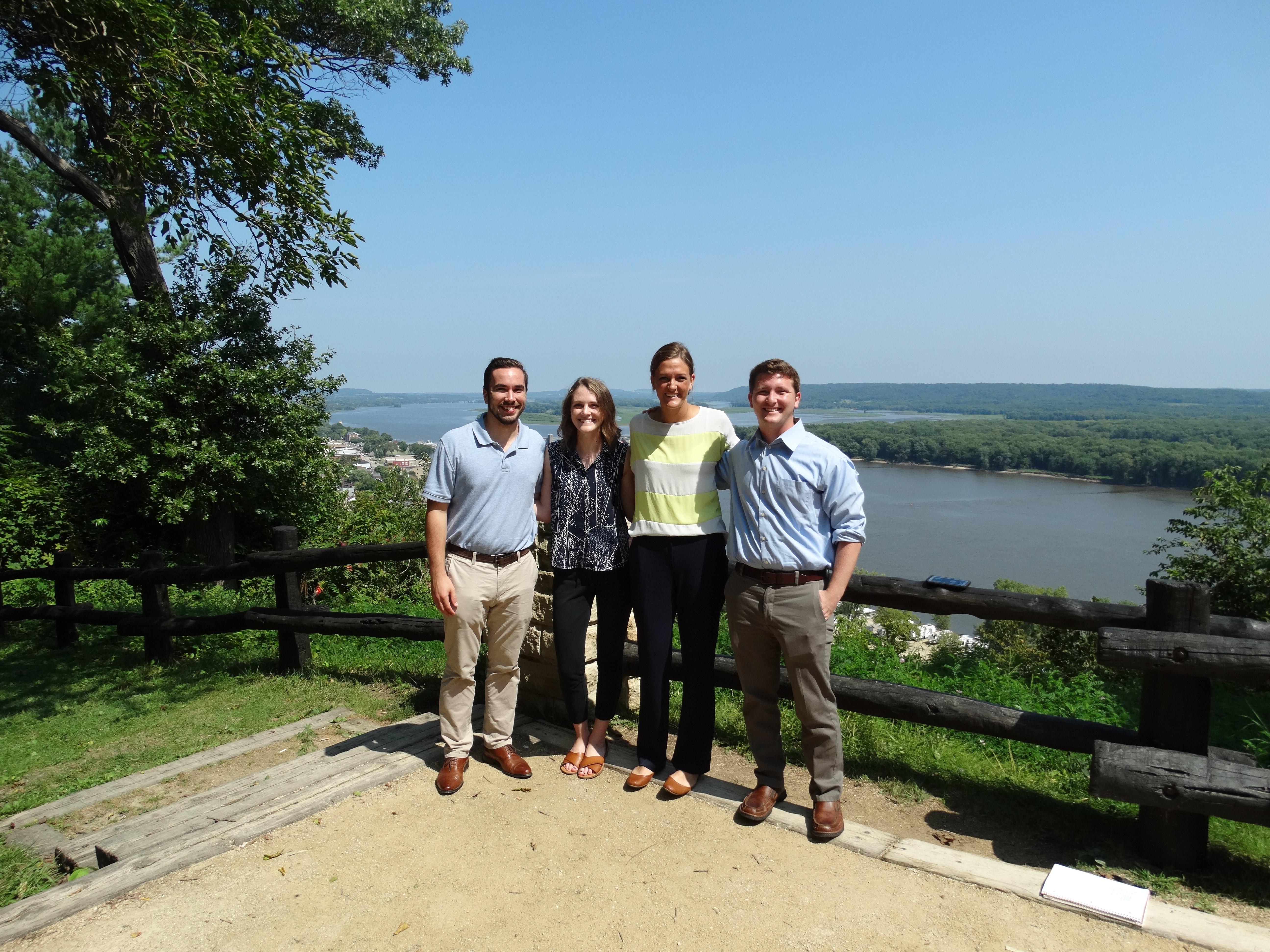Attracting Young Families to Jackson County
As part of their capstone project, second-year graduate students from the School of Urban & Regional Planning developed strategies and recommendations to position and market Jackson County as a top choice in the region for young families making residential location decisions.
Following community visioning and other planning processes, Jackson County officials sought to build on existing assets and proactive leadership in order to retain young families and attract new families to the community. While a recent housing needs assessment demonstrates a growing need for additional housing to accommodate older residents, young families are equally essential to community vitality and sustainability. New and innovative strategies are necessary to make Jackson County more prepared and appealing for this target market.
With natural features like the Maquoketa Caves State Park and the Mississippi River along the eastern border, Jackson County has long been a draw for outdoor enthusiasts. Arts & cultural amenities such as the increasingly popular Codfish Hollow music venue, a drive-in movie theater (one of five in Iowa), and the Maquoketa Art Experience draw in tourists and enhance quality of life for local residents. Jackson County is also conveniently located between Dubuque and the Quad Cities, two Eastern Iowa employment hubs.
Still, local leaders recognize the need to adopt proactive and innovative strategies to increase physical infrastructure capacity, particularly with regards to appropriate housing stock, and to effectively market to young families. Succession planning for small businesses has also been identified by Jackson County Economic Alliance (JCEA) staff as a strategic marketing opportunity.
In their report to JCEA, the students evaluated policies, incentives, and other strategies implemented by comparable communities. The students also evaluated the need for succession planning as many rural business owners reach retirement age, and how this could be an effective incentive to young families interested in operating existing businesses. The students evaluated Jackson County’s competitive advantages (and, and conversely, obstacles to overcome) and potential financial incentives that will be the foundation for an effective campaign to attract young families. Through research and public outreach activities, the report provides recommendations and tools to address issues related to housing, child care, youth development, economic vitality, and marketing.
